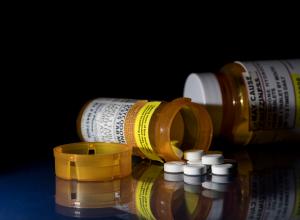Teens are constantly bombarded with new challenges and influences, and having the right information is critical to helping them navigate these pressures”
NEW ORLEANS, LA, UNITED STATES, October 30, 2024 /EINPresswire.com/ -- Dr. Arwen Podesta, a board-certified psychiatrist and the owner of Podesta Wellness in New Orleans, is raising awareness about effective strategies to prevent drug use among teenagers. As the teen years mark a critical phase in brain development, Dr. Podesta emphasizes the importance of education, communication, and mental health support in protecting adolescents from the risks associated with substance use.— Dr. Arwen Podesta
"Adolescence is a time of rapid brain development, which makes teens particularly vulnerable to risky behaviors, including drug use," states Dr. Podesta. "Understanding this vulnerability is key to implementing effective prevention strategies that can significantly reduce the likelihood of teens experimenting with drugs."
Dr. Podesta's approach to prevention is centered on a multifaceted strategy, involving not only families but also schools, communities, and healthcare providers. She outlines several important components that can be integrated into everyday practices to help reduce the risk of teen drug use.
The Role of Education
Education is one of the most effective tools in preventing drug use, according to Dr. Podesta. Schools play an important role by offering evidence-based programs that inform students about the risks of drug use and provide skills for making healthy decisions. However, education does not stop at school.
"Education must start early and be ongoing," Dr. Podesta notes. "Teens are constantly bombarded with new challenges and influences, and having the right information is critical to helping them navigate these pressures."
Dr. Podesta also stresses the importance of dispelling myths and misinformation about drug use, which can be prevalent, especially with the widespread access to information online. Ensuring that teens receive accurate, age-appropriate information is essential in reinforcing healthy choices.
Open Communication and Setting Boundaries
Dr. Podesta advises parents and guardians to establish open lines of communication with their teens. According to her, fostering a home environment where teens feel safe discussing their thoughts and concerns can be a powerful prevention strategy.
"Teens need to feel that they can talk about the pressures they face without fear of judgment or punishment," explains Dr. Podesta. "At the same time, it’s important to set clear boundaries and expectations regarding drug and alcohol use. Consistent messaging from parents about these boundaries helps reinforce responsible behavior."
Dr. Podesta also points out that parents should model healthy coping mechanisms, demonstrating effective ways to manage stress and challenges. Teens are likely to mimic the behaviors they see at home, and showing them how to handle difficulties without turning to substances can leave a lasting impact.
Addressing Mental Health
Mental health issues, such as anxiety, depression, or trauma, are closely linked to an increased risk of drug use among teens. Dr. Podesta highlights the critical role that mental health support plays in prevention efforts.
"Many teens use substances as a way to self-medicate when struggling with mental health issues," says Dr. Podesta. "By addressing these underlying conditions early on and providing teens with the resources they need to manage their mental health, the risk of substance use can be significantly reduced."
Access to mental health services, including counseling and peer support, can help teens build the skills necessary to manage emotional challenges in a healthy way. Community initiatives aimed at reducing the stigma surrounding mental health issues are also key to ensuring that teens feel comfortable seeking help when they need it.
Building Resilience in Teens
Dr. Podesta stresses the importance of building resilience in teens, which can empower them to handle the pressures of adolescence without resorting to substance use. She recommends encouraging participation in activities that foster a sense of purpose, belonging, and self-worth.
"Extracurricular activities, such as sports, arts, and volunteering, provide teens with positive outlets for their energy and emotions," says Dr. Podesta. "These activities also help teens build valuable social skills and emotional resilience, which are crucial in preventing drug use."
Resilience-building programs that focus on emotional regulation, problem-solving, and mindfulness can be effective tools for teaching teens how to handle stress and challenges. These skills can be integrated into school curriculums or offered through community-based initiatives.
Community Involvement and Access Control
Communities play a critical role in preventing teen drug use by providing supportive environments and reducing access to substances. Dr. Podesta emphasizes the need for community-wide efforts that engage local governments, schools, law enforcement, and healthcare providers.
"Limiting access to drugs, alcohol, and tobacco in the community, along with enforcing policies that promote drug-free environments, can greatly reduce the chances of teens being exposed to substances," states Dr. Podesta. "At home, parents can take steps to secure prescription medications and alcohol to limit access."
Dr. Podesta also calls for stronger collaboration between schools, families, and communities to create safe and supportive environments where teens are encouraged to make healthy choices.
Medications
Medication-assisted therapy (MAT) plays a significant role in treating substance use disorder (SUD) in teens and adolescents, particularly for opioid use disorder (OUD). The American Society of Addiction Medicine (ASAM) recommends considering the full range of treatment options, including pharmacotherapy, for adolescents with OUD. The primary medications used include methadone, buprenorphine, and naltrexone.
Combining MAT with psychosocial interventions is recommended to enhance treatment outcomes. Psychosocial treatments, such as cognitive-behavioral therapy (CBT) and motivational interviewing, are crucial components of a comprehensive treatment plan. l treatment. Despite the evidence supporting MAT, access remains limited for adolescents.
Conclusion
Dr. Arwen Podesta is committed to raising awareness about the importance of early intervention and comprehensive strategies to prevent teen drug use. Through education, communication, mental health support, and community involvement, and medication management when needed, teens can be empowered to make informed decisions that protect their health and future.
Podesta Wellness, located in New Orleans, specializes in integrative psychiatry and addiction treatment. Dr. Podesta is an advocate for holistic approaches that focus on mental, emotional, and physical well-being, offering a range of services that address both prevention and recovery in substance use.
Morgan Thomas
Rhino Digital, LLC
+1 504-875-5036
email us here
Visit us on social media:
Facebook
Legal Disclaimer:
EIN Presswire provides this news content "as is" without warranty of any kind. We do not accept any responsibility or liability for the accuracy, content, images, videos, licenses, completeness, legality, or reliability of the information contained in this article. If you have any complaints or copyright issues related to this article, kindly contact the author above.



